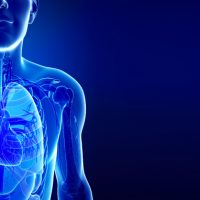Format: Pre-congress course, LIVES 2024 (Barcelona, Spain)
Dates: 05-06 October 2024
The ESICM Advanced Course in ARF & MV will integrate at an advanced level topics such as non-invasive respiratory support in acute hypoxemic failure and lung protective ventilation under assisted modes. Interactive lectures will alternate with clinical case discussions, practical demonstrations and discussion of techniques. The course will conclude with a friendly competition and awards.
ARF & MV Pathway Directors
- Leo HEUNKS MD, PhD Professor, Pneumologist-intensivist, Department of Intensive Care, Erasmus University Medical Center, Rotterdam, The Netherlands
- Lise PIQUILLOUD MD, PhD Deputy ICU Physician, Adult Intensive Care Unit, University Hospital of Lausanne, Switzerland; Senior lecturer University of Lausanne, Switzerland; Chair elect ARF section ESICM
Course Directors Level 3:
- Leo HEUNKS MD, PhD Professor, Pneumologist-intensivist, Department of Intensive Care, Erasmus University Medical Center, Rotterdam, The Netherlands
- Massimo Antonelli MD Professor of Anesthesiology and Intensive Care Medicine, Università Cattolica del Sacro Cuore; Director of the Department of Anesthesiology and Intensive Care and Emergency Medicine, Fondazione Policlinico Universitario A.Gemelli IRCCS, Rome, Italy
Endorsement: The course is endorsed by the Acute Respiratory Failure Section, ESICM.
- Noninvasive respiratory support in acute hypoxemic failure
- To analyse the effect of P-SILI in non-intubated patients
- To evaluate the physiological effects of HFNO vs NIV
- To apply advanced respiratory support during NIV
- To apply advanced respiratory support during NIV
- Lung protective ventilation under assisted modes
- To evaluate ARDS subphenotypes and lung protective strategies
- To assess energy delivered by ventilator and lung damage
- To analyse controlled and assisted mode impact on the lung
- Noninvasive respiratory support in acute hypoxemic failure
- P-SILI in non-intubated patients
- Physiological effects of HFNO vs NIV
- Advanced respiratory support during NIV
- Advanced respiratory support during NIV
- Lung protective ventilation under assisted modes
- ARDS subphenotypes and lung protective strategies
- Energy delivered by ventilator and lung damage
- Controlled and assisted mode impact on the lung
A total of 5 fellowships will be conducted in centres around Europe, giving fellows the opportunity to experience management of acute respiratory failure and mechanical ventilation in real-life settings and learn directly from experts. Fellowship-related costs (accommodation and travel) up to 1000 EUR/fellow will be reimbursed by ESICM
Eligibility for fellowships:
- Must be a member of the ESICM (so join us now if not already a member!)
- Must attend at least 2 levels of the Acute Respiratory Failure and Mechanical Ventilation pathway within 1 year
- Fellowships will be awarded on basis of attendance at the course and highest performance in the post-course evaluation.
Fellowship center and mentor:
- Parc Taulí Hospital Universitari, Sabadell, Spain – Oriol ROCA and the local team (February 24-28, 2025)
Note! Priority will be given to those participants who haven’t benefitted from a fellowship on this topic before.
- Completed the ESICM Foundation course in ARF & MV
OR - Intensivist (in training), Anaesthesiologist (in training), or physician with at least 2 years of clinical experience in intensive care with ventilated patients
OR - Registered ICU Nurse / respiratory therapist with at least two years of experience treating ventilated patients
The Advanced course in Acute Respiratory Failure & Mechanical Ventilation, Barcelona, Spain 05/10/2024 – 06/10/2024 , has been accredited by the European Accreditation Council for Continuing Medical Education (EACCME®) with 12.5 European CME credits (ECMEC®s). Each medical specialist should claim only those hours of credit that he/she actually spent in the educational activity.
Through an agreement between the Union Européenne des Médecins Spécialistes and the American Medical Association, physicians may convert EACCME® credits to an equivalent number of AMA PRA Category 1 CreditsTM. Information on the process to convert EACCME® credit to AMA credit can be found at https://edhub.ama-assn.org/pages/applications .
Live educational activities, occurring outside of Canada, recognised by the UEMS-EACCME® for ECMEC®s are deemed to be Accredited Group Learning Activities (Section 1) as defined by the Maintenance of Certification Program of the Royal College of Physicians and Surgeons of Canada.
Social media: @ESICM #lung #MechanicalVentilation
BUILD YOUR COMPETENCIES




